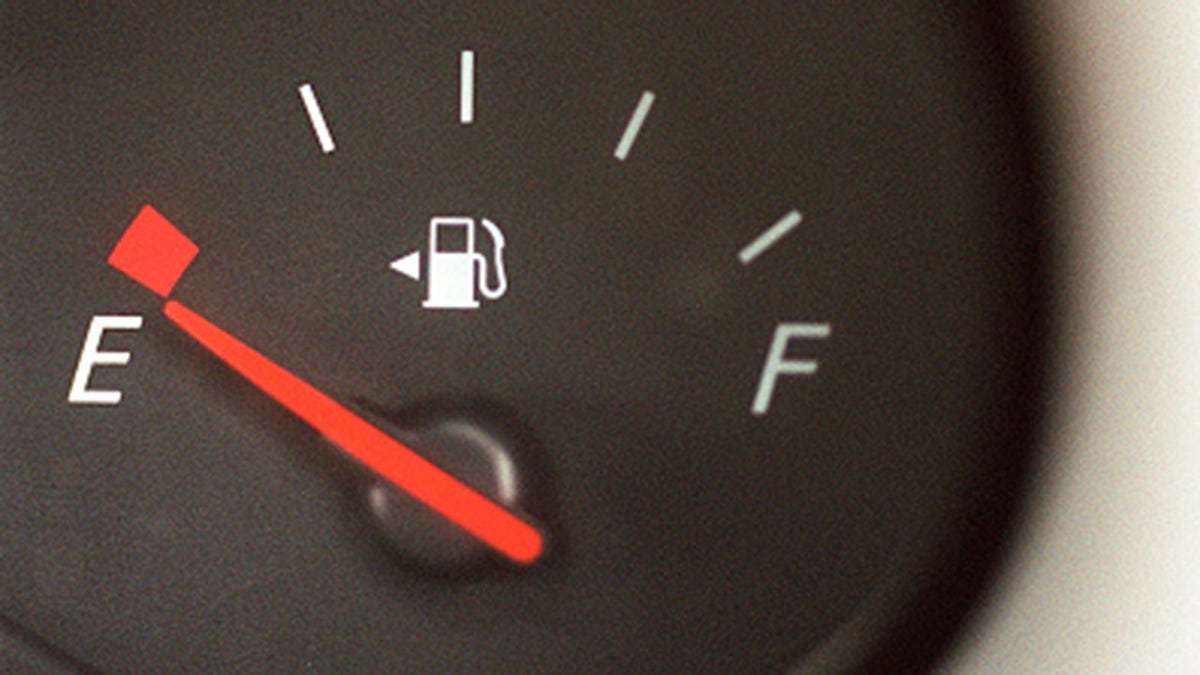
(Getty)
It’s one of the most useful, but often overlooked features in nearly every car. Especially the borrowed ones.
You’ll find it in the fuel gauge. A little, unlabeled triangle, usually right next to the gas pump icon.
For those in the know, it indicates what side of the car the fuel filler door is on, so you don’t pull up to the wrong pump at a station.
There’s no general consensus among automakers as to which side this should be, so the arrow is particularly helpful to renters and new car owners. But whose idea was it?
The "Every Little Thing" podcast recently took on the challenge of answering that question and tracked down its origin story.
One rainy day in 1986, a Ford interior trim engineer named Jim Moylan said he was foiled by a company pool car that he needed to fill up, when he first went to the wrong side and got extra soaked. Motivated by the incident, he wrote a memo to his supervisors suggesting some sort of indicator should be added to the gauge, then forgot about it. Three years later, it turned up in the 1989 Ford Escort and Mercury Tracer, and was eventually copied by all other automakers over the years, even though no there are no regulations that require it.
That said, while Moylan’s idea was clearly independent and the spark of genius that led to the symbol’s widespread adoption, an earlier version of the instructional triangle may have turned up a decade earlier.
Jalopnik’s Jason Torchinsky pointed out on the podcast that the low fuel light located inside of the fuel gauge of the 1976 Mercedes-Benz W123 sedan is shaped like a triangle and happens to point toward the side of the car that you fill up on, but the automaker couldn’t confirm the reasoning behind it. Instead, its first documented use of the symbol for fuel filler location was in 1997.
Moylan didn’t file a patent on the design, but said he’s happy to point it out to anyone who looks like they need it, never taking credit when he does.



















